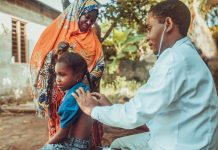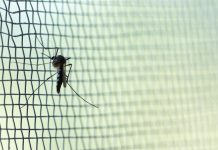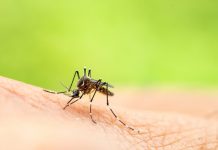Researchers aim to uncover how extreme weather affects long-term HIV care outcomes and implications for addressing climate change impacts and other chronic health conditions
The National Institute of Allergies and Infectious Diseases (NIAID) has awarded two grants for groundbreaking research. These grants consist of a $3.2 million, four-year award and a $550,000 administrative supplement for 12 months. These funds will be dedicated to the research of the impact of climate change and extreme weather on global HIV-related health outcomes.
Project collaboration
A collaborative team of researchers from the CUNY Institute for Implementation Science in Population Health (CUNY ISPH) at the CUNY Graduate School of Public Health and Health Policy (CUNY SPH), the University of California, San Francisco (UCSF), the University of California, Santa Barbara (UCSB), and the Icahn School of Medicine at Mount Sinai, will investigate the impacts of extreme weather events, such as heavy rainfall, hurricanes, and droughts, on both short-term and long-term outcomes experienced by over two million individuals living with HIV. These individuals are part of HIV care programs in 44 countries worldwide.
Most of the 37 million people living with HIV are on treatment
“Most of the 37 million people living with HIV are on treatment, which requires continuous access to antiretroviral medications both to ensure a normal life expectancy and prevent onward transmission of the virus,” says CUNY SPH Distinguished Professor of Epidemiology Dr. Denis Nash, executive director of CUNY ISPH and a principal investigator of both studies.
Climate data integration
The four-year R01 award project will use a unique combination of data sources to study how extreme weather affects HIV care outcomes. The main focus will be on the global IeDEA cohort collaboration, which has data on over two million people receiving HIV care at 400 clinics in 44 countries since 2004. This data includes details on clinic visits, medication usage, and HIV-related tests, which can help assess various outcomes like disruptions in care, treatment, viral suppression, and clinic discontinuation.
The IeDEA cohort data will be merged with climate data from UCSB, which offers high-resolution daily temperature and rainfall information based on satellite imagery and weather station data (CHIRPS/CHIRTS). By combining these sources, the team will conduct in-depth studies to understand better how extreme weather impacts HIV outcomes over time.
As part of the R01 project, a qualitative study will be conducted in the Philippines and Rwanda. These two countries are prone to and have a history of being affected by extreme weather events. The study will involve people living with HIV and important stakeholders. It aims to uncover the factors that make these individuals vulnerable or resilient in extreme weather events. The research will explore effective strategies, both at the clinic and household levels, used to adapt and respond to extreme weather events.
Creating a climate and health SIG
Through a 12-month administrative supplement to the Central Africa IeDEA project, the CUNY team plans to establish a Climate and Health Scientific Interest Group (SIG) as part of the global IeDEA network. Certain crucial aspects of HIV care outcomes investigated by IeDEA, such as care gaps, patient engagement, care losses, viral suppression, and drug resistance, lack adequate explanation within the existing data.
This new Climate and Health SIG within IeDEA aims to connect and support over 500 investigators in the IeDEA network who share an interest in climate and health research. Additionally, the project will develop climate-related data resources tailored to IeDEA, making conducting research in climate and health easier.
Potential implications
While the existing research on this subject has indicated that extreme weather can negatively affect HIV-related exposures and outcomes, most of these studies have been observational and cross-sectional. The forthcoming findings from these new projects will take advantage of longitudinal data spanning several decades. This will provide a more accurate understanding of the causal relationships involved.
This improved understanding can, guide the development of strategies to mitigate the impacts of climate change and extreme weather on HIV care outcomes, ultimately influencing the course of the HIV pandemic. The team anticipates that the insights gained from this work will also have relevance for other chronic health conditions that rely on continuous access to care and medications, such as hypertension and diabetes.
Editor's Recommended Articles
-
Must Read >> Researchers unravel HIV drug resistance mechanisms
-
Must Read >> Why have HIV outcomes improved with urban gardening?











